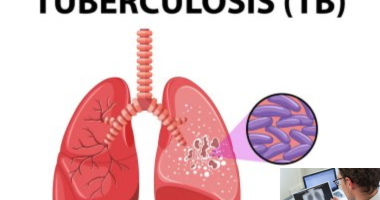Back pain is a common symptom experienced by those suffering from Long COVID, the term is used to describe the persistent symptoms that can linger for months after the initial COVID-19 infection.
Long COVID, also known as post-acute sequelae of SARS-CoV-2 infection (PASC), is a complex condition characterized by a wide range of symptoms that can persist for weeks or even months after the initial COVID-19 infection. While fatigue, brain fog, and shortness of breath are among the most commonly reported symptoms, recent research suggests that back pain could also be a potential warning sign of Long COVID.
A study published in the journal Nature found that individuals with both COVID-19 and menstrual changes were more likely to experience fatigue, headache, body aches and pain, and shortness of breath. This suggests that one of the more perplexing symptoms associated with Long COVID is persistent back pain, that can linger for weeks or even months after the initial SARS-CoV-2 infection, particularly in combination with other reported symptoms. While the exact mechanisms behind this phenomenon are still being investigated, researchers have proposed several potential explanations or potential causes of back pain in long COVID
Inflammation and Muscle Aches: One of the primary drivers of back pain in Long COVID appears to be the body’s inflammatory response to the virus. COVID-19 can trigger the release of pro-inflammatory cytokines, leading to widespread muscle aches and pains, including in the back. This muscle inflammation, or myalgia, is a common symptom reported by those with both acute COVID-19 and Long COVID.
Autoimmune Reactions: Researchers have also hypothesized that Long COVID may involve an autoimmune component, where the body’s immune system mistakenly attacks its own tissues, including the muscles and joints in the back. This aberrant immune response could contribute to ongoing back pain and other musculoskeletal symptoms.
Reactivation of Latent Viruses: Some experts believe that COVID-19 may reactivate dormant viruses within the body, such as the Epstein-Barr virus or herpes viruses. The reactivation of these latent viruses could trigger inflammatory processes that manifest as back pain and other Long COVID symptoms.
Chronic Changes After Acute Infection: The initial COVID-19 infection may also lead to long-term changes in the body’s tissues and systems, even after the virus has been cleared. For example, inflammation in one area, such as the lungs, could potentially spread and cause damage to other areas, including the back muscles and spine.
Deconditioning and Immobility: For those who were hospitalized or bedridden during their acute COVID-19 illness, prolonged inactivity and deconditioning can also contribute to back pain. Lack of movement and muscle use can lead to stiffness, weakness, and increased sensitivity to pain.
Psychological Factors: The stress, anxiety, and depression that often accompany Long COVID may also play a role in the experience of back pain. Chronic stress can heighten pain perception and contribute to the development of persistent musculoskeletal symptoms.
Symptoms Of Long-COVID
Here is a diverse array of Long COVID symptoms that can significantly impact an individual’s quality of life.
Fatigue and Weakness: According to CDC report, one of the symptoms that occur in a lot of people with Long-COVID is still persistent fatigue and weakness. Individuals may experience overwhelming exhaustion, even after periods of rest, and find it challenging to perform everyday tasks.
Neurological Symptoms: Long COVID can also manifest as various neurological symptoms, including brain fog, headaches, dizziness, tremors, and cognitive impairment. These neurological effects may be due to the virus’s ability to affect the central nervous system.
Cardiovascular Symptoms: Cardiovascular complications, such as rapid or pounding heartbeat, chest pain, and postural tachycardia syndrome (PoTS), have been observed in some Long COVID patients. These symptoms may be linked to the virus’s impact on the heart and circulatory system.
Respiratory Symptoms: Respiratory symptoms, including persistent cough, shortness of breath, and reduced lung function, are also common in individuals with Long COVID. These symptoms may be a result of the virus’s direct impact on the lungs or the body’s ongoing inflammatory response.
Gastrointestinal Symptoms: Gastrointestinal issues, such as stomach pain, diarrhea, and constipation, have been reported by some Long COVID patients. These symptoms may be related to the virus’s ability to affect the digestive system.
Sensory Disturbances: Loss of or changes in smell and taste, as well as hearing problems, have been observed in some individuals with Long COVID. These sensory disturbances may be due to the virus’s impact on the olfactory and auditory systems.
Musculoskeletal Symptoms: Muscle and joint pain, as well as back pain, are common symptoms of Long COVID. These musculoskeletal issues may be a result of the body’s inflammatory response or the effects of prolonged inactivity during the acute phase of the illness.
Psychological Symptoms: Long COVID has also been associated with psychological symptoms, such as depression, anxiety, and sleep disturbances. These mental health effects may be a consequence of the physical toll of the illness, as well as the social and emotional impact of the ongoing symptoms. More symptoms are
- Body or muscle ache
- Sore throat
- Difficulty in breathing
- Pain in the chest
- Indigestion
So, if you are still experiencing any of the above-mentioned symptoms after recovering from COVID-19, you should be aware that you have long-COVID and should take better care of yourself.
Characteristics of Long COVID Back Pain
- Long COVID back pain can manifest in several ways:
- Persistent, deep, and aching pain that is not relieved by changes in posture
- Pain in the lower back, upper back, or both
- Stiffness, tenderness, and aches in the back, neck, shoulders, and legs
- Rheumatic-like symptoms similar to conditions affecting the joints, tendons, muscles, ligaments, and bones
The pain can be widespread, affecting multiple areas, or isolated to a single location. The onset and duration of symptoms vary, with some people experiencing pain within a few weeks of infection and others developing it months later. The pain can last anywhere from one to three months or longer
Managing Long COVID Back Pain
There is no one-size-fits-all approach to managing Long COVID-related back pain, but some strategies that may provide relief include:
- Gentle, low-impact exercises and physical therapy to improve strength and flexibility
- Over-the-counter pain medications like acetaminophen or anti-inflammatory drugs
- Complementary therapies like massage, acupuncture, or heat/cold therapy
- Addressing any underlying mental health concerns like anxiety or depression
Ultimately, the best course of treatment will depend on the individual’s specific symptoms and needs. According to experts, a healthy diet, adequate sleep, moderate to vigorous exercise daily, and other factors already discussed can reduce your chances of experiencing long-term COVID symptoms and make dealing with post-COVID health issues easier. Consulting with a healthcare provider who is familiar with Long COVID is recommended to develop a personalized management plan.
References
- Ada Health. (n.d.). Back Pain COVID Symptoms: Causes and Treatments. Ada Health. https://ada.com/covid/back-pain-covid-19/
- Health.com. (n.d.). covid-back-pain. Health.com. https://www.health.com/condition/infectious-diseases/coronavirus/covid-back-pain
- Downey, A. (2022, January 11). Lower back pain and COVID-19: Is it a symptom? Medical News Today. https://www.medicalnewstoday.com/articles/lower-back-pain-covid
- Sykes, D. L., Holdsworth, L., Jawad, N., Gunasekera, P., Morice, A. H., & Crooks, M. G. (2021). Post-COVID-19 Symptom Burden: What is Long-COVID and How Should We Manage It? Lung, 199(2), 113–119. https://doi.org/10.1007/s00408-021-00423-z
- Nath, A. (2020). Long-Haul COVID. Neurology, 95(13), 559–560. https://doi.org/10.1212/WNL.0000000000010640
- Puntmann, V. O., Carerj, M. L., Wieters, I., Fahim, M., Arendt, C., Hoffmann, J., Shchendrygina, A., Escher, F., Vasa-Nicotera, M., Zeiher, A. M., Vehreschild, M., & Nagel, E. (2020). Outcomes of Cardiovascular Magnetic Resonance Imaging in Patients Recently Recovered From Coronavirus Disease 2019 (COVID-19). JAMA Cardiology, 5(11), 1265–1273. https://doi.org/10.1001/jamacardio.2020.3557
- Huang, C., Huang, L., Wang, Y., Li, X., Ren, L., Gu, X., Kang, L., Guo, L., Liu, M., Zhou, X., Luo, J., Huang, Z., Tu, S., Zhao, Y., Chen, L., Xu, D., Li, Y., & Li, C. (2021). 6-month consequences of COVID-19 in patients discharged from hospital: a cohort study. The Lancet, 397(10270), 220–232. https://doi.org/10.1016/S0140-6736(20)32656-8
- Cheung, K. S., Hung, I. F., Chan, P. P., Lung, K. C., Tso, E., Liu, R., Ng, Y. Y., Chu, M. Y., Chung, T. W., Tam, A. R., Yip, C. C., Leung, K. H., Fung, A. Y., Zhang, R. R., Lin, Y., Cheng, H. M., Zhang, A. J., To, K. K., Chan, K. H., … Yuen, K. Y. (2020). Gastrointestinal Manifestations of SARS-CoV-2 Infection and Virus Load in Fecal Samples from a Hong Kong Cohort: Systematic Review and Meta-analysis. Gastroenterology, 159(1), 81–95. https://doi.org/10.1053/j.gastro.2020.03.065
- Gavi, the Vaccine Alliance. “Why does COVID-19 cause back pain?” https://www.gavi.org/vaccineswork/why-does-covid-19-cause-back-pain
- London Pain Clinic. “Nearly 3 Years On: What We Know About Long Covid.” https://www.londonpainclinic.com/covid-19/nearly-3-years-on-what-we-know-about-long-covid/









